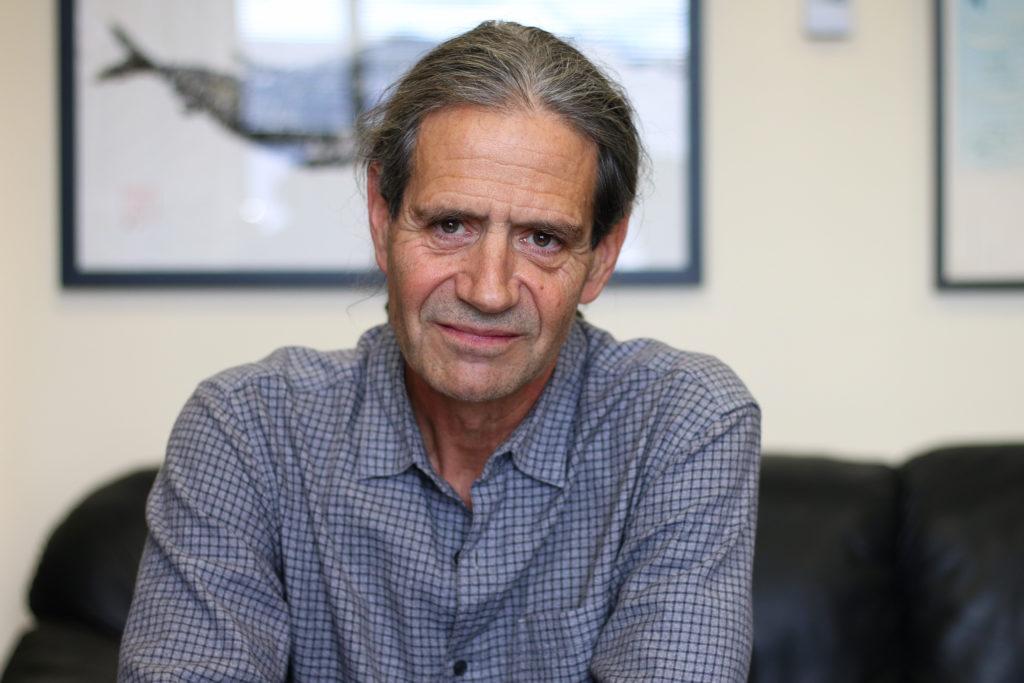The University plans to develop an office to better support postdoctoral researchers, officials said.
Faculty and researchers said an office for postdoctoral researchers – former students who professionally conduct research after completing their doctorates – would help the group feel more engaged in campus activity. Postdoctoral researchers also said they want to have access to resources, like career services and assistance in applying for research grants that undergraduate and graduate students frequently utilize.
Robert Miller, the vice president for research, said plans for the office are still in the “early” stages, and postdoctoral researchers make “important contributions” to GW’s research. He said the University has more than 100 postdoctoral researchers on campus, the majority of which are affiliated with the School of Medicine and Health Sciences, the Columbian College of Arts and Sciences and the School of Engineering and Applied Science.
Miller announced at a Faculty Senate meeting earlier this month that the Office of the Vice President for Research would work to develop an office for postdoctoral affairs and evaluate the University’s processes for hiring and recruiting postdoctoral researchers. Processes for hiring postdoctoral researchers vary from department to department, according to the University’s website.
“We are looking forward to conducting an analysis of current and needed resources for our postdocs,” Miller said in an email. “We are currently gathering information so that we can review and plan our next steps.”
Miller said officials are waiting to receive feedback from the faculty-led research review that launched last year before opening the office.
“That information will be useful in helping us set goals and determine the most effective ways to support our postdocs,” he said.
Miller declined to say how the University plans to increase resources for postdoctoral researchers at GW and why increasing resources is a priority. Miller also declined to say what resources and office spaces are available to postdoctoral researchers currently.
Miller declined to say what departments would be most impacted by creating the office and what resources would be required to create the office. He also declined to say how much it will cost to expand resources available to postdoctoral researchers.
Miller declined to say how he will work to launch an office for postdoctoral affairs and how he hopes the office will help postdoctoral researchers. He also declined to say when he expects the office will open.
Guillermo Orti, a professor of biology, said postdoctoral researchers are not provided with many resources to help them apply for research grants and complete job searches. He said that by creating an office for postdoctoral affairs, researchers would feel a greater sense of community and have access to resources that are designed specifically for them.
“Postdocs typically fall between the cracks,” he said.
Orti said the postdoctoral affairs office would create a “postdoc network” in which researchers could build professional development skills. He said it would be helpful for researchers to work with a mentor in the office to develop achievable career goals.
“Postdocs are also in a critical moment in their career when they are getting ready to take the leap to a tenure-track position, and many of them lack the knowledge, training and advice that they need to be really competitive,” he said.
Postdoctoral researchers said the University needs to identify and advertise what resources are available to postdoctoral researchers to help them troubleshoot research projects or look for employment.
Of GW’s 12 peer schools, eight have offices for postdoctoral affairs. The University of Miami provides a series of guidelines for mentoring postdoctoral researchers through its Postdoctoral Programs Office. The University of Southern California outlines different programs that postdoctoral researchers can participate in through the USC Office of Postdoctoral Affairs.
Allison Kolbe, a first-year postdoctoral researcher in the Computational Biology Institute, said postdoctoral researchers lack general resources on campus, like staff to assist them in their current research positions and future career goals.
“Since we are not considered faculty or students, it can sometimes be challenging to find these resources on campus,” Kolbe said.
Elaine Guevara, a first-year postdoctoral researcher in the Center for the Advanced Study of Human Paleobiology, said that while it’s helpful to have access to the graduate career services center, having resources specifically dedicated to postdoctoral researchers would be “even better” because any type of consulting would be more catered to researchers.
“It might seem counterintuitive that an employer should invest in resources to help their employees find different jobs – this belies the liminal status of the postdoc – not quite regular staff, not fully student,” Guevara said.
Habacuc Flores Moreno, a second-year postdoctoral researcher in the Department of Biological Sciences, said the hiring process for postdoctoral researchers is “too broad,” and several of the questions asked are “generic” and not relevant to someone’s job as a postdoctoral researcher, like what kind of equipment a researcher is familiar with or how well a researcher deals with clients.
He said an office focused on postdoctoral affairs could help “advocate” for people in a “stressful” and “vulnerable” time in their careers.
“Its effectiveness hinges on the reach that they can have on the postdoc community and what their mission statement is,” he said.





